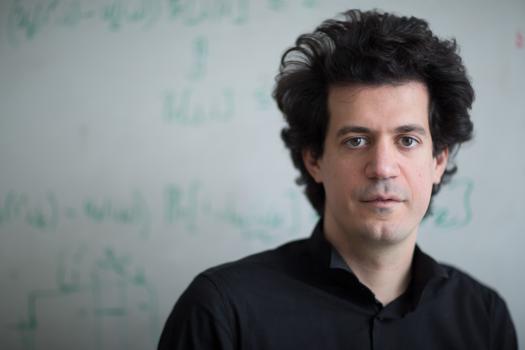On Jan. 18, the Association for Computing Machinery (ACM) announced its 2022 fellows, those it recognizes “for significant contributions in areas including cybersecurity, human-computer interaction, mobile computing, and recommender systems among many other areas.” Included in the crop of new fellows were six distinguished scientists with ties to MIT, including MIT professor and CSAIL principal investigator Constantinos ("Costis") Daskalakis.
As the Armen Avanessians (1982) Professor in the Department of Electrical Engineering and Computer Science (EECS), Daskalakis was honored “for contributions to the foundations of algorithmic game theory, mechanism design, sublinear algorithms, and theoretical machine learning.” He is a theoretical computer scientist who works at the interface of game theory, economics, probability theory, statistics, and machine learning.
Daskalakis' current work focuses on multi-agent learning, learning from biased and dependent data, causal inference, and econometrics. Previously, he has resolved long-standing open problems about the computational complexity of the Nash equilibrium, a concept in which players in a non-cooperative game do not deviate from their initial strategy because it is not optimal for either participant. Daskalakis has also worked on the mathematical structure and computational complexity of multi-item auctions and the behavior of machine-learning methods such as the expectation–maximization algorithm.
A native of Greece, Daskalakis joined the MIT faculty in 2009. He is a member of the Computer Science and Artificial Intelligence Laboratory (CSAIL) and affiliated with the Laboratory for Information and Decision Systems (LIDS) and the Operations Research Center. Additionally, he is also an investigator in the Foundations of Data Science Institute.
The ACM fellowship is one of many honors for Daskalakis, a list which also includes the 2018 Nevanlinna Prize from the International Mathematical Union, the 2018 ACM Grace Murray Hopper Award, the Kalai Game Theory and Computer Science Prize from the Game Theory Society, and the 2008 ACM Doctoral Dissertation Award.


